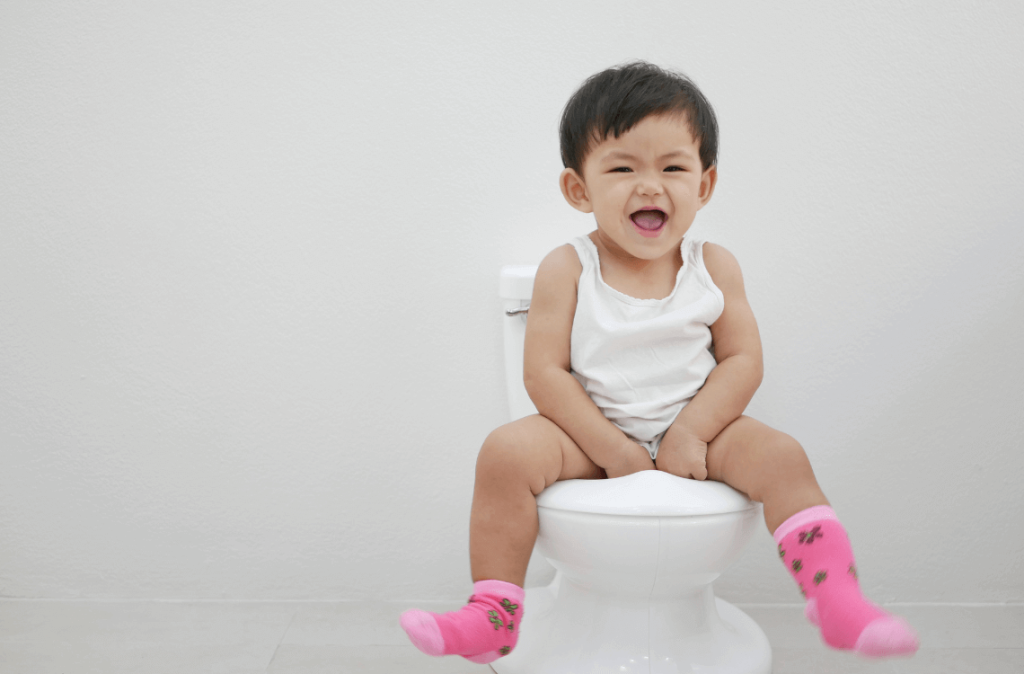As a new parent it may seem like your baby produces an infinite number of dirty nappies, but how do you tell when it’s more than normal?
Here is how to deal with diarrhoea in babies.
What is Diarrhoea
Diarrhoea refers to loosen and watery stools that are frequent and sometimes smell much worse than usual.
A few common causes of diarrhoea are food poisoning, parasites and irritable bowel syndrome (IBS).
The causes in infants could be different.
Why Babies Get Diarrhoea
Some causes behind diarrhoea in babies are harmless but others are cause for concern. How do you tell which are which?
Normal Causes
These causes are not microbial factors and are usually part of the process of exposure to new diets.
- Dietary change can lead to a bout of diarrhoea. Addition of fibre-rich food like fruits and vegetables can cause loose stools. As your baby gets used to this change their poops will regulate themselves.
- Food allergies and similar conditions like lactose intolerance can cause diarrhoea as well. As soon as you identify the cause, cut it out of your baby’s diet and you have no more reason to worry.
- Sugars in juices and fruit called fructose can behave as a laxative if taken in large amounts. If you are giving your child juice, either dilute it or control the amount given. Do not give your baby juice if they are less than a year old
- A side effect of antibiotics is that it can disrupt the normal bacterial growth in your baby’s gut. This can cause a round of diarrhoea. If your baby is breastfed, the antibiotics you take can affect them as well.
Infectious Causes
Diarrhoea caused by infection is a bit more serious but still easily dealt with. As with most cases your baby simply needs plenty of hydration until the infection passes.
- Viruses like rotavirus are some of the most common causes of diarrhoea in infants and children. Viral infections cause inflammation in the digestive tact and diarrhoea is the bodies response in purging your body of the virus.
- Bacterial infection like salmonella and E.coli trigger a response commonly known as food poisoning. It is usually transmitted through contaminated food or water.
Symptoms of Diarrhoea in Babies
Although diarrhoea is not a serious issue, there are certain sign that indicate you should take them to the doctor immediately.
- Decrease in wet nappies (< 4 a day)
- Sunken eyes
- Crying without tears
- Fontanelle (sunken spot on the top of the head)
- Not moving
These are all signs of severe dehydration. Especially if these signs are still apparent after being given electrolyte solution or increased amount of milk, seek medical attention immediately.
How to Treat Diarrhoea in Babies
It is possible to treat diarrhoea at home, as it is one of those illnesses that just needs to be ridden out. Here are some ways to speed up the process.
- Electrolyte-rich liquids like coconut water and oral rehydration salt solution can be given to toddlers instead of water. It is more effective for rehydration as it contains minerals. Avoid sugary sports drinks.
- For infants who are still on a milk diet, breastmilk can be given more often. For formula fed babies, check with your paediatrician if they are able to take an electrolyte solution.
- Children who can eat should be given bland food in small portions. Avoid processed, sugary or greasy food that will make their condition worse.
- Any medication given should be approved by a doctor first. You shouldn’t give your child medicine without a reason.
What Comes Next
As alarming as it is to find that the cause of your baby’s diarrhoea is an infection, rest asured they can be cured within days. it may be a bit frightening to see your baby in such discomfort but your paediatrician will have a solution.
For more insightful stories and fun recipes, stay tuned to Motherhood Story!
